2024-11-22
The "WTA·Xianghu Dialogue 2024" was recently held in Sanya, Hainan, where global tourism leaders gathered to share insights on the topic "Integrating Digitalization and Intelligentization in the Hospitality Industry".

Moderator:
Mr. Henry ZHANG, Executive President of Hainan Tourist Hotel Association
Panelists:
Mr. DING Weimin, Executive Vice Chair of Hunan Tourist Hotel Association, Deputy Secretary of the Party Committee and General Manager of Hunan Sunshine Hotel Group Co., Ltd.
Mr. Guang Tsann TSAO, Chairman of Guilin Yuzi Paradise and Shanghai Yuehu Sculpture Park
Mr. DU Hongxin, Chairman of the Dragon Hotel Hangzhou
Ms. WANG Minmin, Vice President of Beijing Feldspar InformationTechnology Co., Ltd. and Chairman of Hangzhou Xiruan Information Technology Co., Ltd.
Ms. Jessica FENG, Senior Consultant of Meituan Lodging
Here is a transcript of the discussion:
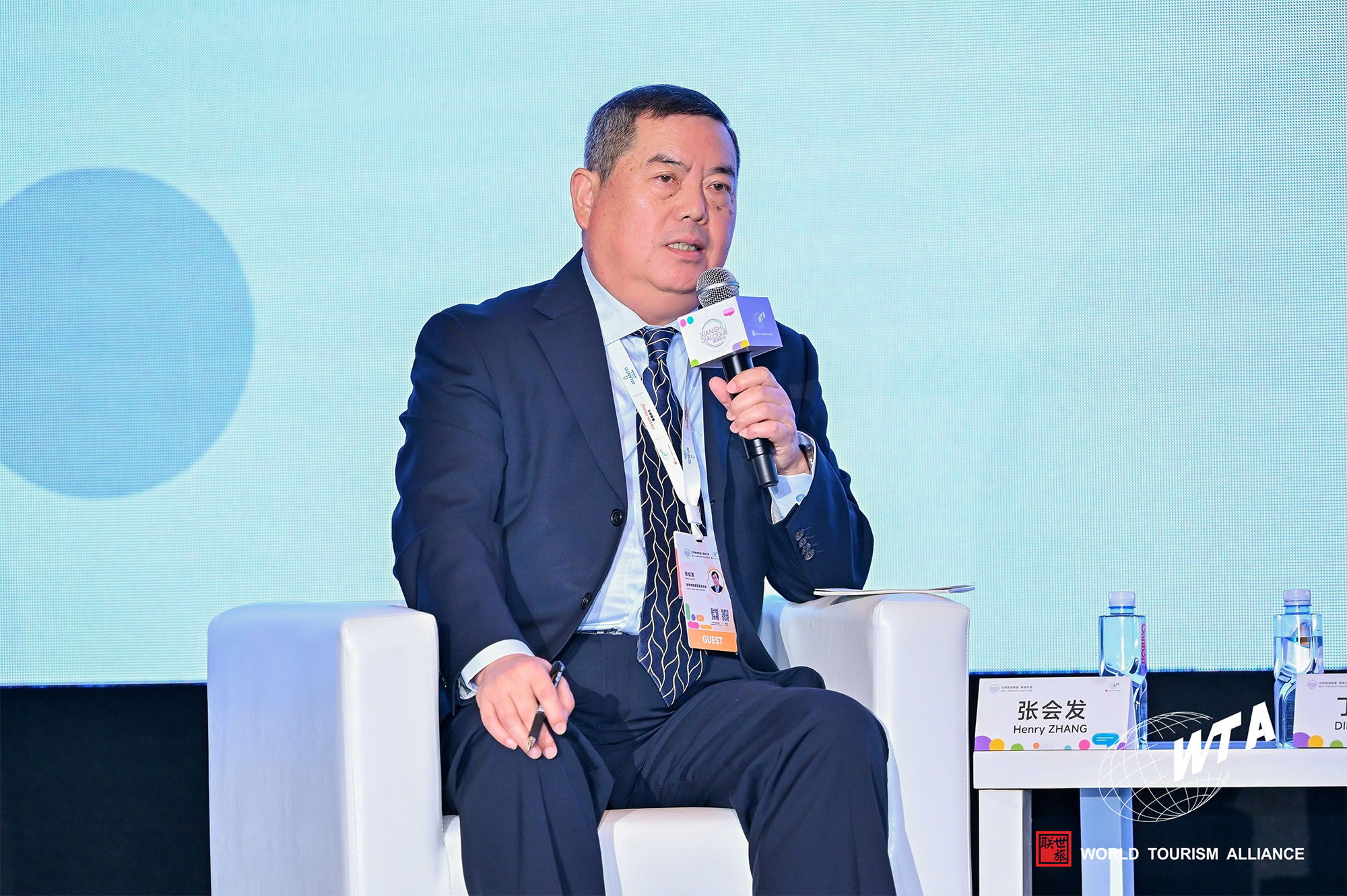
Moderator: Today, we’ll be covering the topic of "Integrating Digitalization and Intelligentization in the Hospitality Industry". Could each of you share your insights and perspectives on this?

Mr. DING Weimin: "Integrating digitalization and intelligentization" has become a prevailing trend in the industry. In 2023, Hunan Tourism Group established a dedicated Smart Technology Company to oversee the digital transformation and operational integration across multiple business sectors. This initiative also extends to providing digital solutions for government services. For our hotel operations, flagship brands like Huatian and SUNSHINE have undertaken numerous digitalization efforts, optimizing guest experiences from back-end management to front-end services. We’ve incorporated advanced market solutions, such as robotics, to deliver tech-driven guest experiences, which are particularly popular with younger customers. On the back-end operation, SUNSHINE Hotels, as a chain brand, has demonstrated significant advantages in scaling management across decision-making, marketing, service, and branding. For member services, we are integrating software solutions to address user pain points and dedicating substantial resources to quality management and staff training, enhancing smart management and single-hotel performance. Currently, our focus is on brand development, especially appealing to younger audiences. Recently, we launched a hotel in Changsha with 110 rooms, where we’ve introduced groundbreaking innovations in smart operations and management. On the topic of Integrating digitalization and intelligentization, I have three suggestions: 1. Conduct a rational analysis based on your needs—don’t blindly follow trends. 2. Technology cannot replace warm and passionate human-centric services. 3. Select and implement software and systems based on practical experience to ensure the effective application of technology.
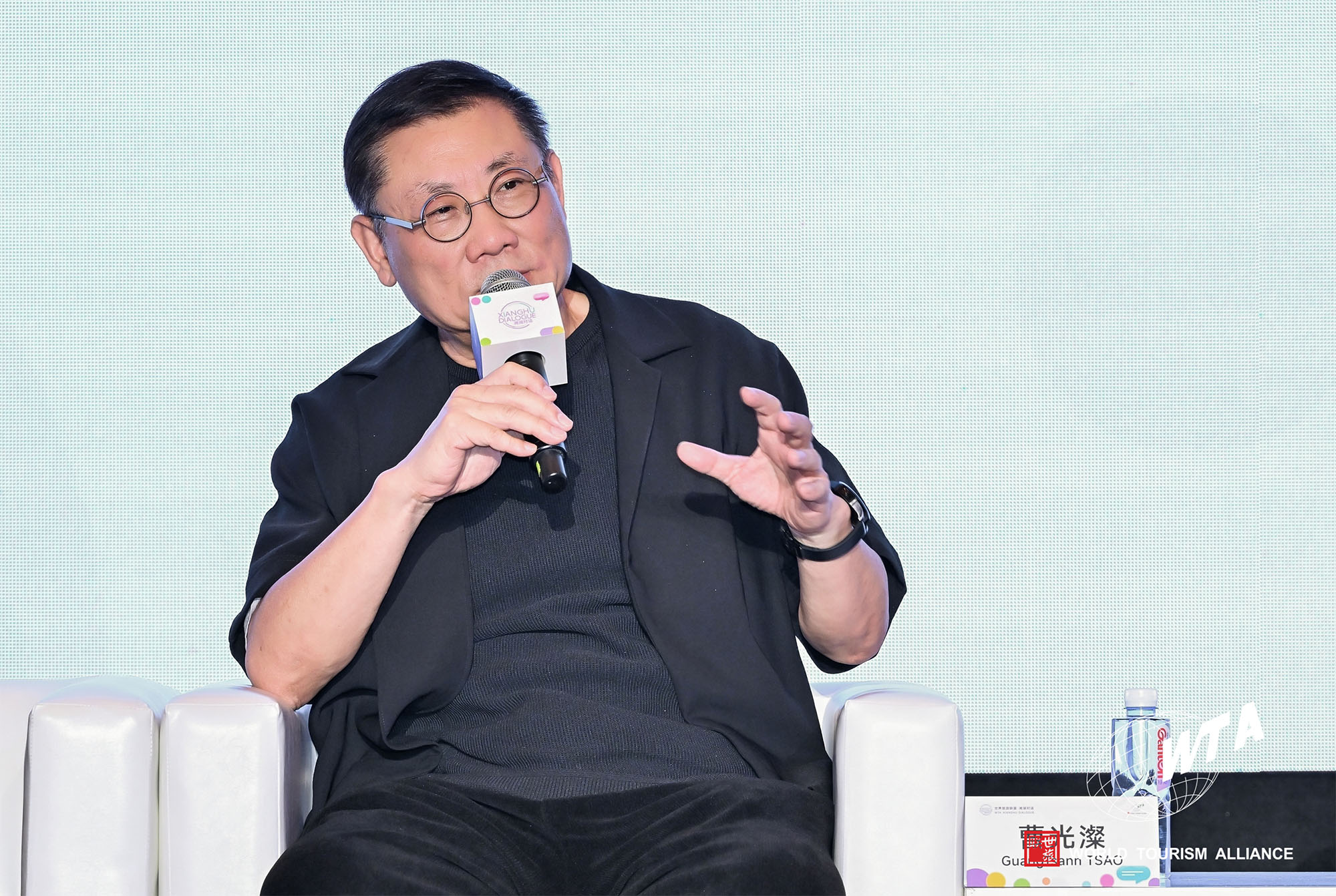
Mr. Guang Tsann TSAO: When discussing the application of technological innovation in traditional industries, we must proceed cautiously. Technology, at its core, exists to serve humanity. It’s essential to prioritize meeting human needs rather than pursuing technological extremes, which can lead to impractical or unappealing products. This issue is particularly relevant when considering Gen Z consumers, who will be the primary driving force of future consumption and increasingly seek personalized experiences. Striking the right balance, making sound investment decisions, and calculating returns on investment are critical challenges in this process. Hotels are heavy-asset investments requiring continuous equipment upgrades and maintenance. With electronic devices continually evolving and prone to malfunctions, systems must have dual pathways: traditional infrastructure and automated controls. Looking at the evolution of tourism, we’ve moved from the 1.0 era of sightseeing to the 2.0 era of destination-focused vacations and now to the 3.0 era of immersive tourism, marked by an array of experiences. As trend observers, we often wonder what the 4.0 era of tourism will look like. I predict the 4.0 era will center around interactive tourism. Destinations will interact with visitors, visitors will interact with each other, and online and offline experiences will merge. This trend towards interactivity will be an irreversible part of the future.
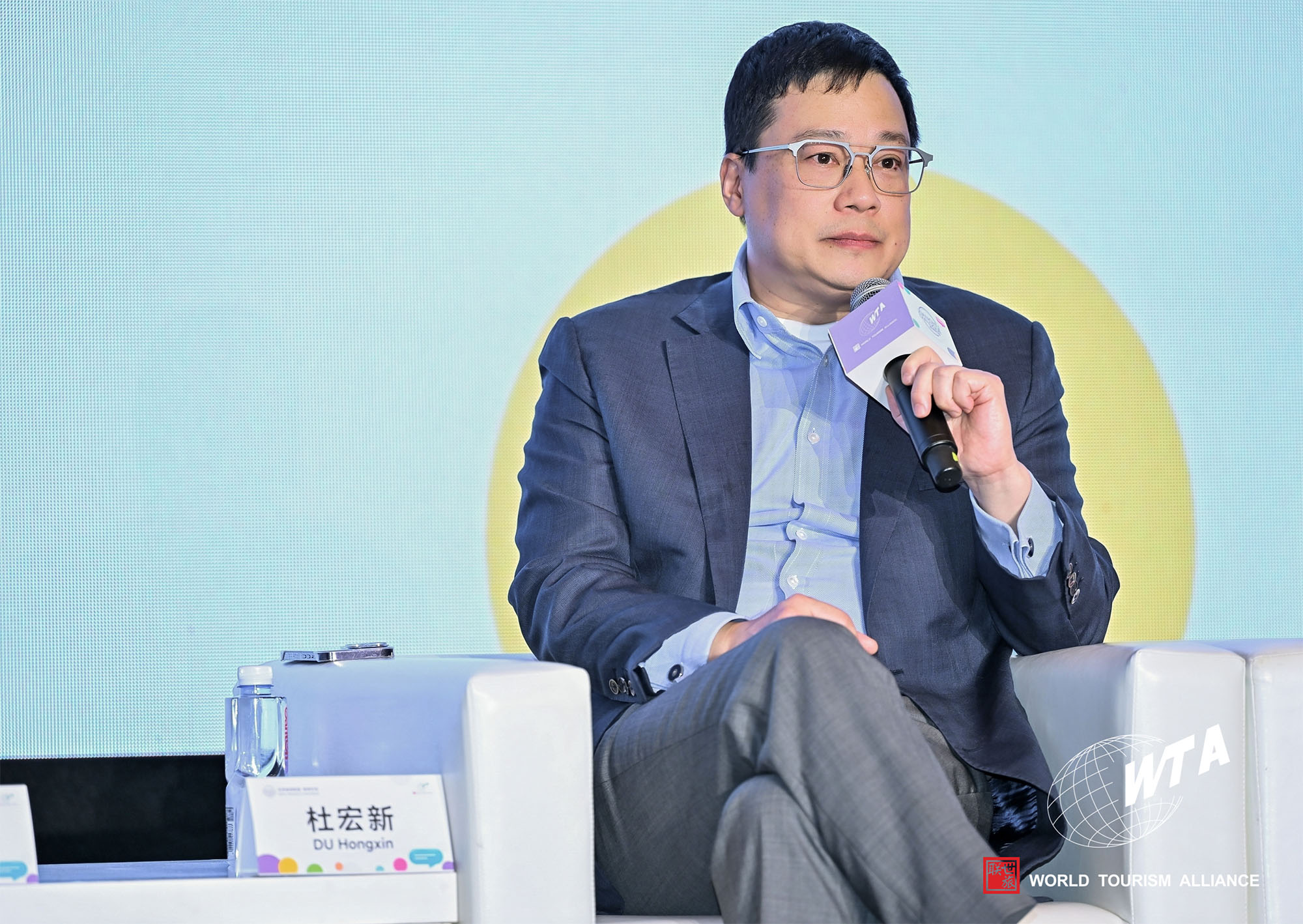
Mr. DU Hongxin: Digitalization and artificial intelligence are pivotal forces in driving transformation within the hospitality sector. The younger generation has fundamentally changed how they communicate and travel, relying heavily on social media to share experiences and recommendations. This shift has created a pressing need for hotels to innovate and adapt to this non-standardized mode of product promotion. Hotels can embrace digital transformation through two key dimensions. First, user experience is a crucial element. For instance, we’ve repurposed our luxury “Eastern Impression” suites into camping-themed rooms, specifically designed for families. These rooms have become incredibly popular, often selling out during holidays, showcasing a clear distinction from traditional hotel offerings. Second, adapting traditional consumption spaces to meet emerging demands is essential. Recently, we converted nearly 2,000 square meters of underground space into an immersive experience zone. This decision was informed by deep data analysis, which helped us identify business patterns and operational strategies. Such efforts not only bring significant economic benefits but also enhance organizational management capabilities. Two years ago, we deployed nearly 1,000 AI-powered digital cameras in our hotels. These cameras provide real-time feedback on guest traffic and operational efficiency, even taking over some managerial tasks. AI also identifies issues with turnover rates and surrounding operations, further optimizing performance. These innovations promise significant returns for the hospitality industry.
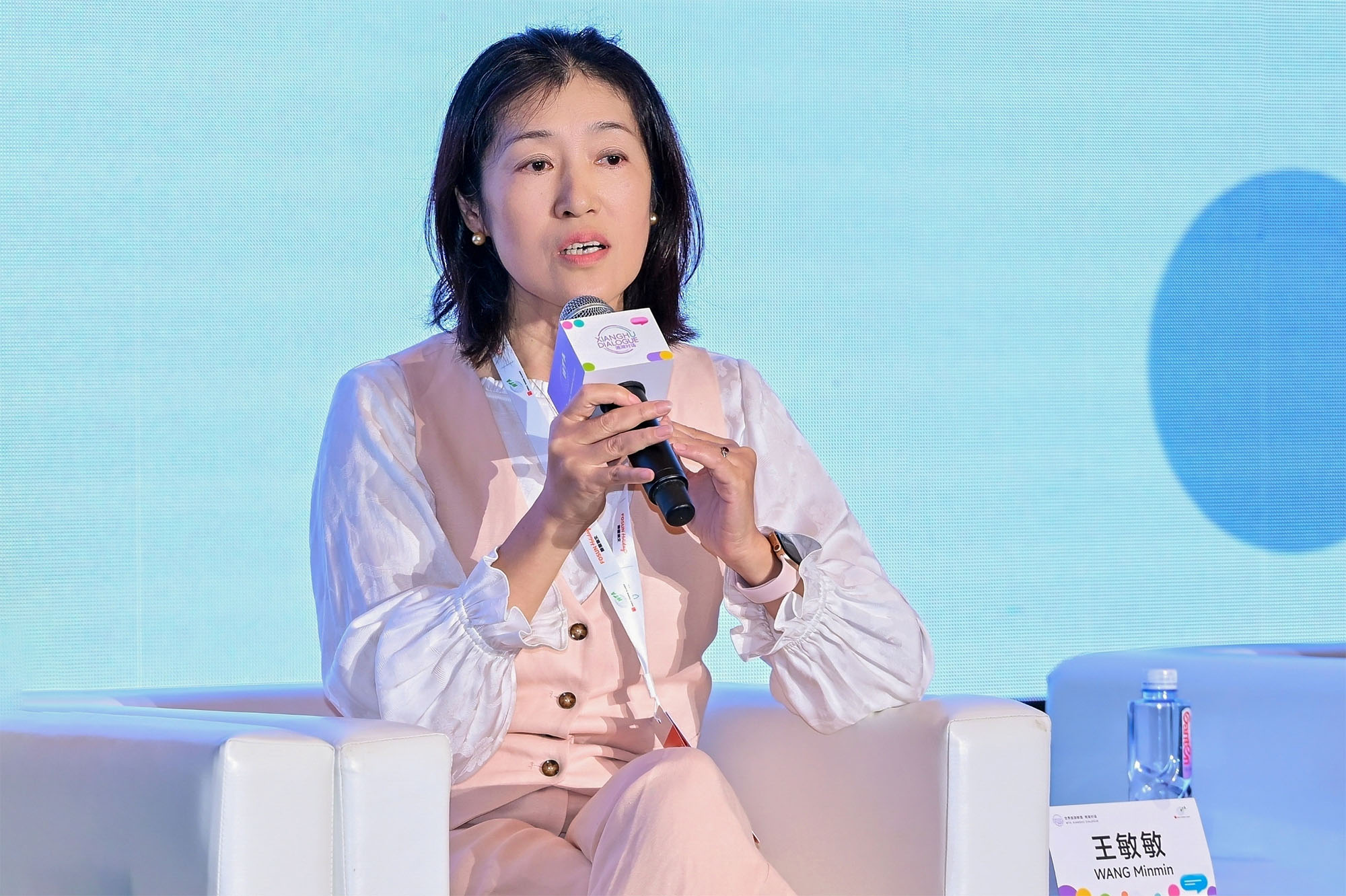
Ms. WANG Minmin: At Feldspar Information, we started our journey as technology followers, dedicated to bringing the world’s most advanced systems to China. Over the decades, we expanded beyond hotel operations, diversifying into tourism, retail, and comprehensive consumer platforms. Now, in an era defined by openness and globalization, we’re setting our sights on international expansion. This aligns closely with national policies promoting enterprise globalization. As we make progress in the field of technology, we aspire to move from following trends to leading the way. Since 2016, we’ve pursued this goal, drawing inspiration from global leaders and investing heavily in resources and talent. Our efforts have culminated in a global strategy that has been eight years in the making. Today, our products rank among the top five internationally for hotel applications. They have been adopted by renowned hotel groups such as Hilton, replacing their legacy systems. With strong adoption across the Middle East, North America, and Asia-Pacific in hotels under Peninsula, Starway, and InterContinental, our solutions are redefining high-end luxury hotel management. We were followers in technology, but may become a leader in the global expansion of Chinese hospitality industry. This transformation underscores our commitment to realizing our technological vision and ambitions.
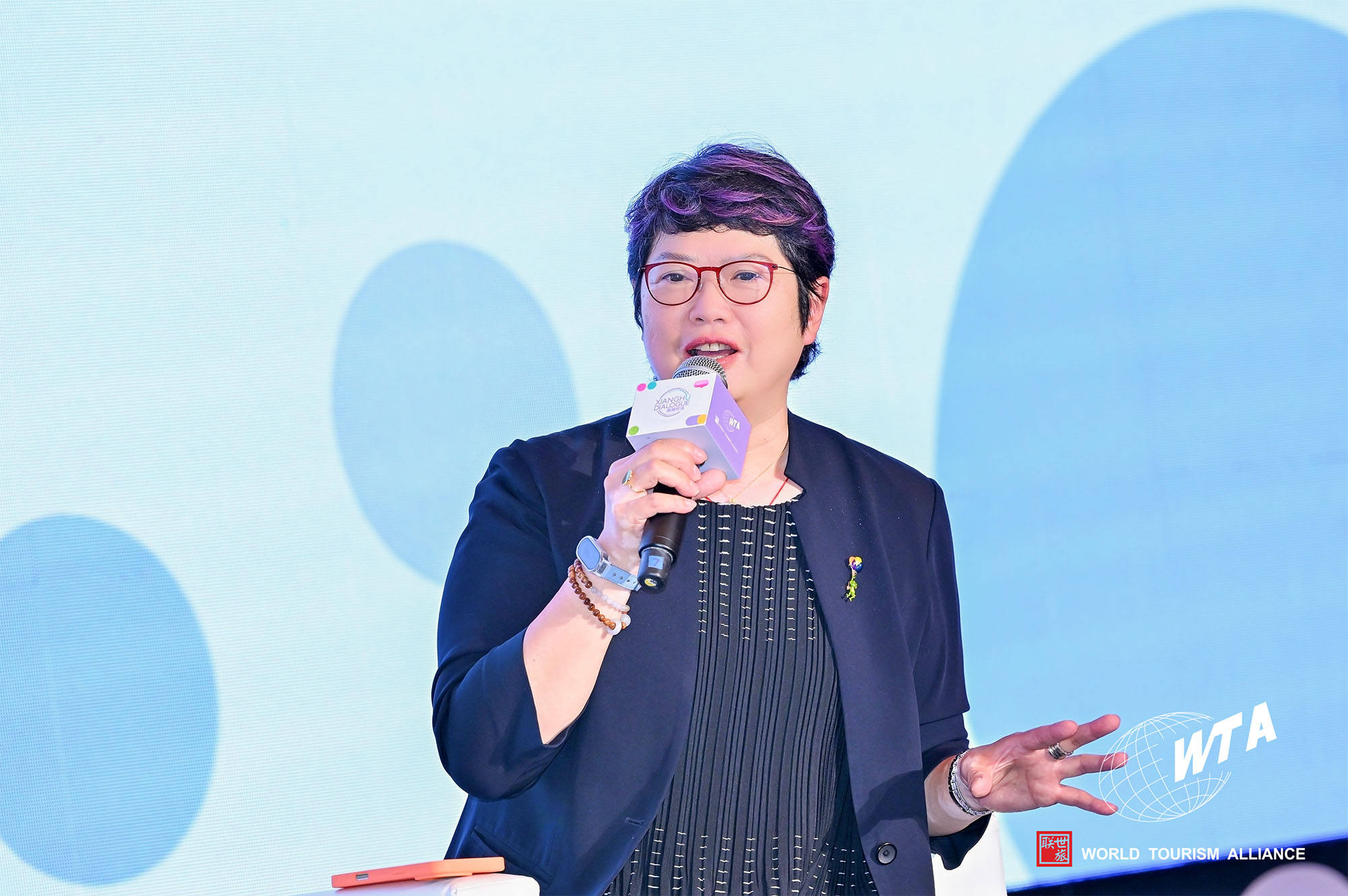
Ms. Jessica FENG: As a platform provider, Meituan addresses the digitalization challenge from both software and hardware perspectives, serving businesses (To B) and consumers (To C). Meituan is focused on helping hotels enhance service by allowing guests to select rooms before arrival and optimizing the overall customer experience. On the hardware side, we’ve integrated robots into delivery services, bridging the "last few hundred meters" to deliver food directly to hotel rooms—a feature favored by younger guests. On the software side, direct-connect systems streamline hotel bookings, benefiting both large chains and independent hotels, which require updates in software and hardware. The hospitality industry has made significant strides in digital transformation, but there’s still room for growth compared to global standards. At Meituan, we aim to help hotels (To B) present themselves effectively on platforms and use data to target specific demographics with precision. The hospitality industry must balance aspirations for innovation with grounded, practical steps. Together, we can harness digitalization to shape a brighter future.
Moderator: To conclude, could each of you share a one-sentence vision for the future?
Mr. DING Weimin: Embrace digital transformation to shape the future.
Mr. Guang Tsann TSAO: Innovate boldly to pave the way forward.
Mr. DU Hongxin: In the digital age, it’s crucial to identify the right focus.
Ms. WANG Minmin: The dream of going global with China’s tourism and hospitality industry will come true.
Ms. Jessica FENG: Aim for the stars while keeping your feet on the ground.